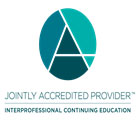Child Development, Resilience and the Environment
Course: WD4516
CE Original Date: September 16, 2021
Renewal Date: September 16, 2023
CE Expiration Date: September 16, 2025
Program Description
In the age of rising chronic multi-factorial diseases, a new way of thinking about how factors interact over a lifetime is needed. The “Ecological Framework” shows the many influences on health for an individual. It incorporates both micro- and macro-perspectives.
Complex interactions occur among many variables and various levels. These range from cell signaling to individual, family, community, and societal levels. We can see their influences in health at all levels and across the lifespan. Rarely is one particular thing responsible for health or disease, so we refer to this as a multifactorial (or ecological) approach, and this approach is the best way to promote health and prevent disease as it can identify key leverage points where efforts will be most effective.
An important element of the ecological framework is timing. During human development, there are critical windows when we are especially sensitive to exposures or interventions that may have a lifelong impact on health.
Objectives
At the conclusion of the session, the participant should be able to:
- Explain an “ecological framework” in regard to health.
- Identify early life factors that can effect adult health.
- Explain “critical time windows.”
- Explain how resilience can help mitigate negative early life factors.
- Discuss environmental justice and its interaction with vulnerability and resilience.
- Describe how to improve collaborative practice across the healthcare team regarding early life factors that can affect adult health.
To access the Childhood Development, Resilience and the Environment module, please visit the Western States PEHSU module page.
Faculty/Credentials
Mark D Miller, MD, MPH, Director, Western States Pediatric Environmental Health Specialty Unit, University of California San Francisco
Brian Tencza, M.Ed., Team Lead, Environmental Medicine and Health Systems Intervention Section, Office of Capacity Development and Applied Prevention Science, Agency for Toxic Substances and Disease Registry
Who is this training for?
Physicians, Registered Nurses, and Health Professionals
Continuing Education

In support of improving patient care, The Centers for Disease Control and Prevention is jointly accredited by the Accreditation Council for Continuing Medical Education (ACCME), the Accreditation Council for Pharmacy Education (ACPE), and the American Nurses Credentialing Center (ANCC), to provide continuing education for the healthcare team.
CME: The Centers for Disease Control and Prevention designates this enduring activity for a maximum of (.5) AMA PRA Category 1 Credits™. Physicians should claim only the credit commensurate with the extent of their participation in the activity.
CNE: The Centers for Disease Control and Prevention designates this activity for (.5) nursing contact hours.
CEU: The Centers for Disease Control and Prevention is authorized by IACET to offer (.1) CEU’s for this program.
CECH: Sponsored by the Centers for Disease Control and Prevention, a designated provider of continuing education contact hours (CECH) in health education by the National Commission for Health Education Credentialing, Inc. This program is designated for Certified Health Education Specialists (CHES®) and/or Master Certified Health Education Specialists (MCHES®) to receive up to (.5) total Category I continuing education contact hours. Maximum advanced level continuing education contact hours available are (.5). Continuing Competency credits available are (.5). CDC provider number 98614.
Instructions for Obtaining Continuing Education (CE)
To receive continuing education (CE) for WD4516R Child Development, Resilience and the Environment. please visit CDC TRAIN and search for the course in the Course Catalog using WD4561R Follow the steps below by September 16, 2025.
- Register for and complete the course.
- Pass the post-assessment at 80%.
- Complete the evaluation.
- Visit Your Learning to access your certificates and transcript.
Fees
No fees are charged for CDC’s CE activities
Training Module Information
Prerequisites: None
Materials: None
Format: This activity is Web-Based
Disclosure:
In compliance with continuing education requirements, all planners and presenters must disclose all financial relationships, in any amount, with ineligible companies during the previous 24 months as well as any use of unlabeled product(s) or products under investigational use.
CDC, our planners, and content experts wish to disclose they have no financial relationship(s) with ineligible companies whose primary business is producing, marketing, selling, reselling, or distributing healthcare products used by or on patients.
Content will not include any discussion of the unlabeled use of a product or a product under investigational use.
CDC did not accept financial or in-kind support from ineligible companies for this continuing education activity.
Fees
No fees are charged for CDC’s CE activities.
Contact Information